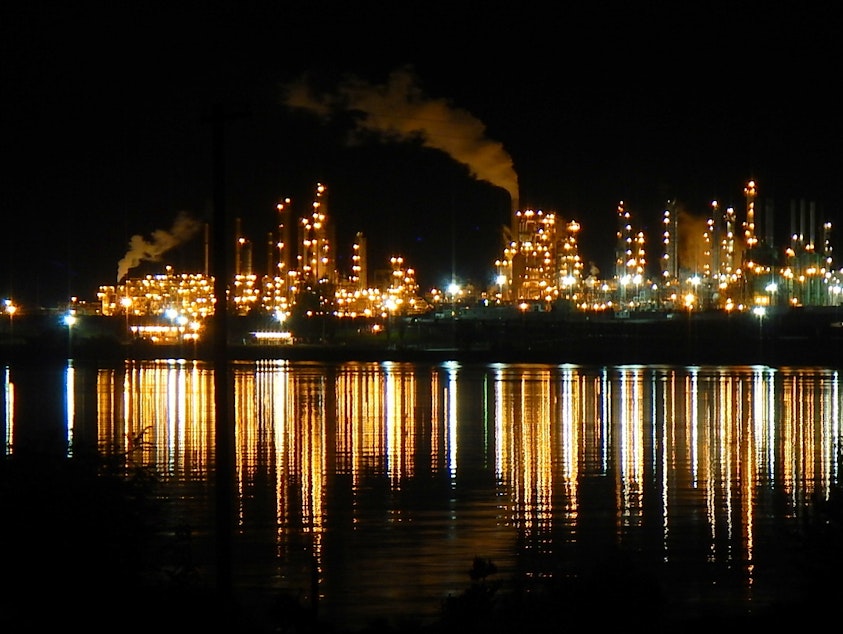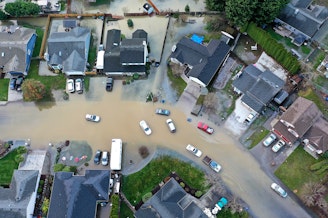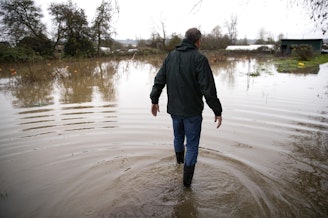Bidding for the right to pollute, WA's first carbon allowance auction

Washington state held its first air pollution auction on Tuesday. Major polluters had three hours to bid for the right to keep pumping out carbon dioxide and other gases that are overheating the planet. KUOW environment reporter John Ryan talked with Kim Malcolm about this unusual auction and what it means for Washington.
Kim Malcolm: Why is the state holding a carbon dioxide auction?
John Ryan: Washington state, just like the rest of the world, has a serious and worsening carbon problem. And nothing the state has tried so far has managed to turn that ship around here. Our oil powered supertanker of an economy is still steaming straight toward the cliffs of climate disaster.
So, Gov. Inslee and the state Legislature put a cap on carbon emissions for major polluters. The cap lets polluters buy allowances from the state or from each other to keep polluting, and that's what happened today. For the first time, polluters were competing to buy the right to add these climate pollutants like carbon dioxide into the air.
This first auction ran for about three hours in the middle of the day. I'm trying to picture it — there a bunch of big industry reps gathered in a room and holding up paddles to show an auctioneer?
No paddles today, this is all virtual. A bunch of polluters' representatives sat at computers. Well, let me let Claire Boyte-White explain. She's a spokesperson for the Washington Ecology Department, which is running this auction.
Sponsored
Boyte-White: “It's not like eBay or like those auctions you would see in the movie where folks raise their hands and, and the highest bidder wins. It's actually kind of the opposite. It's a sealed bid system. So, nobody sees what anybody else is bidding.”
All the bids are secret, and they're kept secret forever. The state wants to avoid any kind of price fixing or collusion among the players.
What's next in the story?
So, we'll find out how much money this auction raised. They'll disclose that a week from today. And that could be up to $500 million. And that will go to all sorts of clean energy and climate programs, a major infusion of cash for those efforts.
And then as the months roll on, we'll see what they call a secondary market developing. Companies that have extra allowances can sell them to other companies for a profit. If they're able to clean up their own pollution enough, and they don't need all their allowances, they can make money by selling them elsewhere. So, we'll see if this new system really does have the effect of ramping down our carbon emissions as much as its backers hope it does.
Sponsored
Listen to the interview by clicking the play button above.






